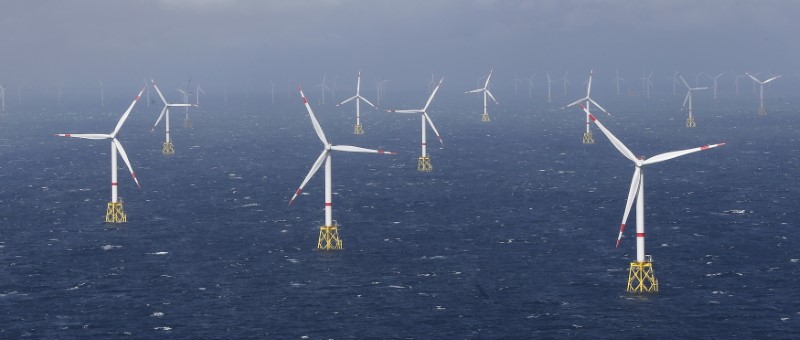BofA warns Fed risks policy mistake with early rate cuts
Investing.com -- Shares of Danish wind turbine giants Vestas Wind Systems (CSE:VWS) and Orsted (CSE:ORSTED) soared after the U.S. Senate passed Trump’s controversial ‘Big Beautiful Bill’.
The U.S. Senate approved the wide-ranging tax package backed by U.S. President Donald Trump, moving the legislation to the House of Representatives for what could be a final vote.
The bill narrowly passed in a 51-50 vote, with Vice President JD Vance casting the tie-breaking ballot after a prolonged 27-hour debate. Three Republicans sided with Democrats in opposing the measure.
Vestas and Orsted saw their shares surge around 10% and 4.5% in Copenhagen, respectively, by 08:57 GMT.
“The new version voted by the Senate softens the phase out of clean energy subsidies, leaving a 12-month window for new projects to be sanctioned, before likely creating a cliff in mid-2026,” Barclays (LON:BARC) analysts led by Vlad Sergievskii said in a note.
The planned phase-out of direct subsidies for wind manufacturers by the end of 2027 remains unchanged, as do supply chain requirements mandating 85–90% non-FEOC content in 2026 and 2027.
The final Senate-approved version of the bill removed the proposed tax penalty for solar and wind projects that fail to meet the FEOC cost ratio threshold.
It also includes a new clause allowing projects that begin construction within 12 months of the bill becoming law to qualify for IRA credits under existing rules. Projects that start later will still need to be placed into service by the end of 2027 to receive the credits.
The Big Beautiful Bill would lock in many of Trump’s key policy initiatives, including the extension of his 2017 tax cuts, cuts to welfare programs, and stepped-up funding for border control and deportation efforts.
The bill has drawn criticism from both parties over its projected $3.3 trillion addition to the national debt.
Opponents have also condemned cuts to programs like Medicaid and SNAP, arguing that it shifts support away from low-income families to fund tax breaks benefiting the wealthy.
